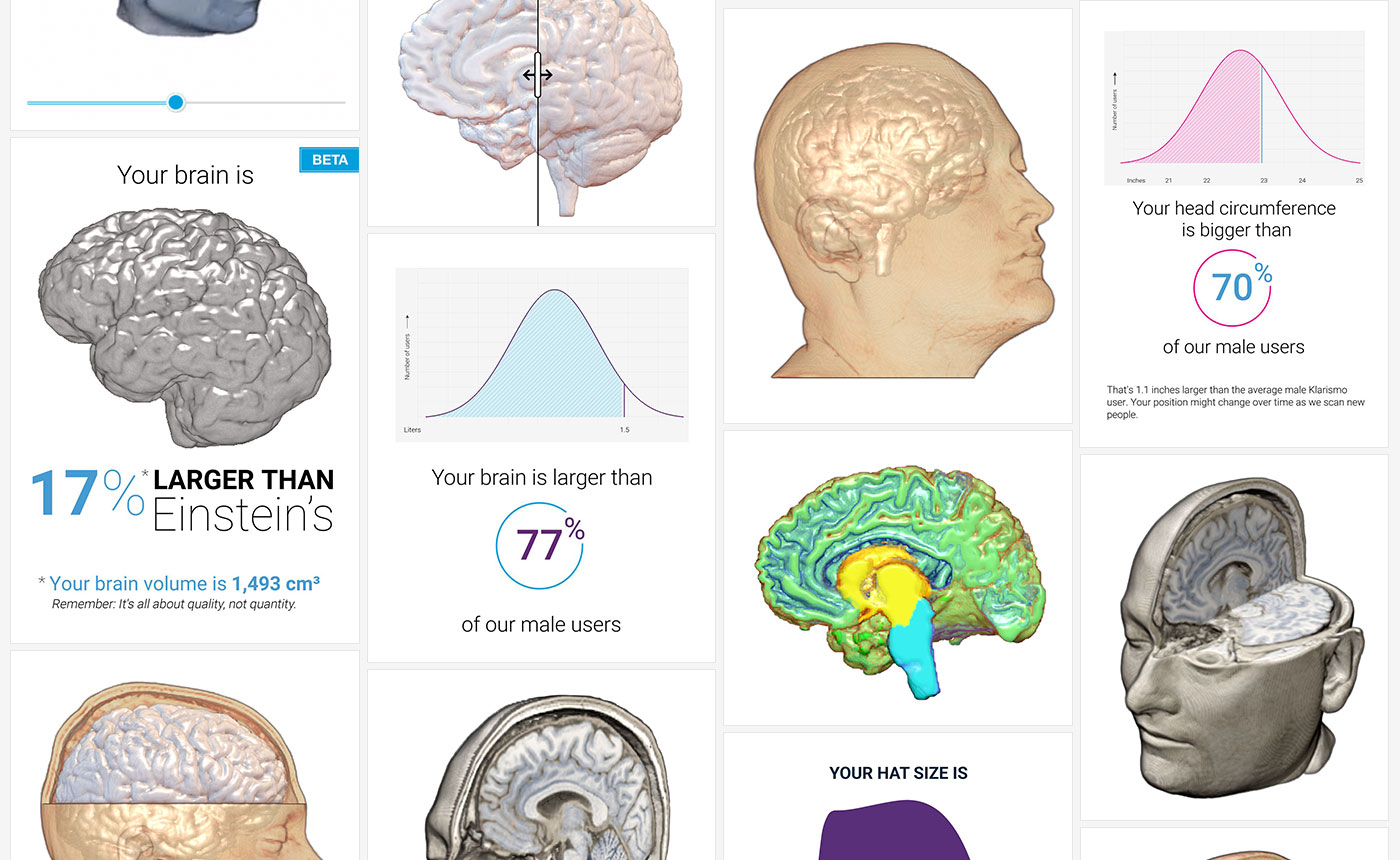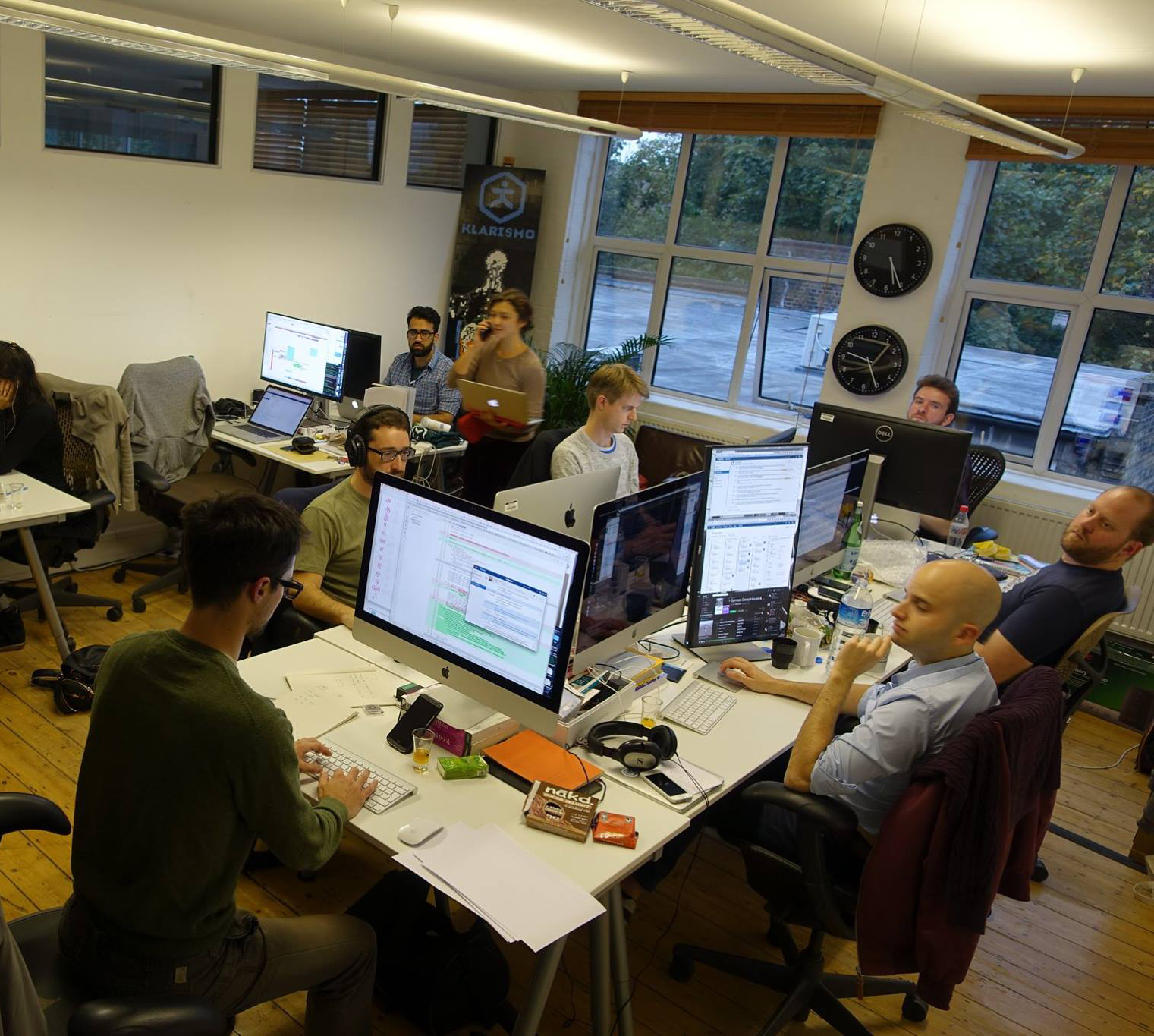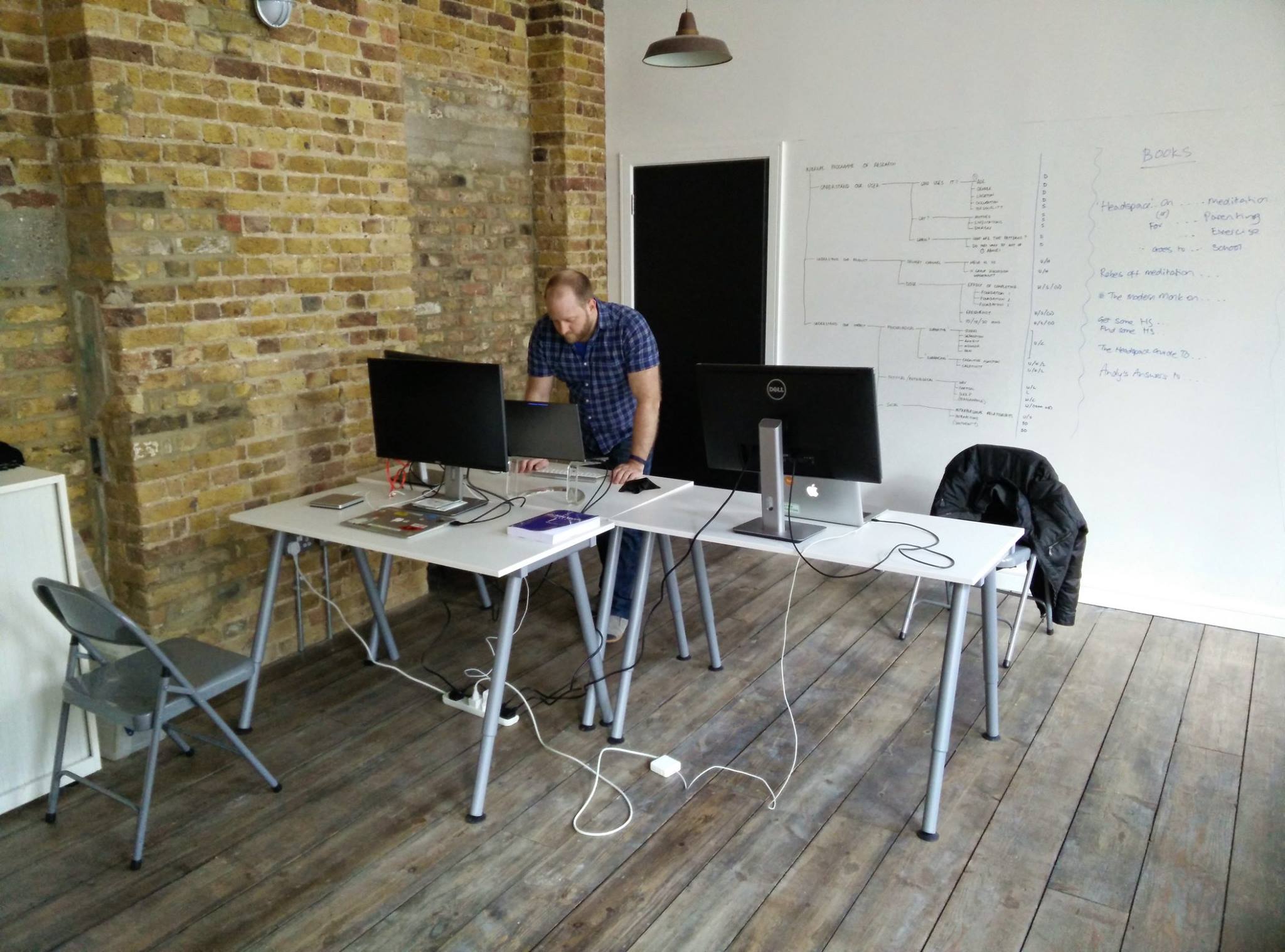Imagine a world where scanning your body and seeing what is inside is as normal as having a haircut. A world where having a 3D model of your body is just like having a photograph of yourself.
There’s a lot of things we don’t know about the human body, and most importantly about our own bodies. Klarismo, a London-bases startup created in 2014, offers a new way to explore our physiology and understand our body’s composition. I spoke with Marcus Foster, CEO and co-founder of Klarismo, who likened the experience to space travel. Anyone who travels to space comes back with a different perception of everything on earth. It is a unique experience outside of the ordinary that changes the way one sees things. Klarismo offers a similar feeling regarding our health. Seeing and understanding how your body functions in extraordinary detail would inspire us. Marcus and his team are trying to do just that.

In the photo: Marcus Foster Ceo of Klarismo
Thank you for speaking to Impakter Marcus. Can you tell us how Klarismo works?
Marcus Foster: Klarismo tries to make magnetic resonance imaging more accessible to consumers. We provide non-diagnostic information to people about their own bodies for self exploration and the ability to get a better understanding of their own body. We have agreements with many medical imaging facilities and we buy scan time from them in bulk. We then send people to get scanned at these facilities and provide an online platform that analyzes the scans. We then do visualizations which allows them to take a very visual journey inside their bodies.
How have you gotten where you are today?
M.F.: I was at Google for eight years, and Yahoo! for seven years as a product manager, mostly working on mobile applications. While I was at Google I started cycling, and I had a number of bike accidents. So I had to take numerous CT scans. Then a year later, I was diagnosed with a tumor in my brain. I had to have a lot of MRIs. During that time, I got really frustrated as a consumer that this amazing data that was being collected about my body (at great expense), was extremely inaccessible to me as a patient. When you have a diagnostic scan, CT or MRI scan, if you’re lucky you may get a disc with the data on it, but what you do with that data is not really clear. You’re basically given some kind of viewing software that allows you to open the image, but that’s not really done in an appealing way. You don’t really understand what you’re looking at. And this is a shame, because it’s amazing data that could be used to understand what’s going on in your body, yet it’s not used for that kind of educational purpose. That’s how we came up with the idea of making this data more useful and accessible to people.
Related article: “How I Came to Love My Damaged Brain by Alon Kaplan”
“An Interview with Babylon Health by Tyler Russell“
How did you come up with the name for your company?
M.F.: The name is from the Esperanto word “klerismo,” which means enlightenment. I believe in abstract brands: you don’t want the name to be too descriptive of what you’re doing cause then you’re kind of restricted in what you can do.
 IN THE PHOTO: KLARISMO’S OFFICE IN HOXTON, PHOTO CREDIT: MARCUS FOSTER
IN THE PHOTO: KLARISMO’S OFFICE IN HOXTON, PHOTO CREDIT: MARCUS FOSTER
Most entrepreneurs have a defined mission. Is it fair to say that your mission was to solve this problem you encountered as a consumer?
M.F.: Absolutely. I got this imagery about my own body, yet when I looked at it I thought “this is really boring.” But by making 3D visualizations of it, we made it amazing. There is a big discrepancy between what is interesting in a scan from a diagnostic perspective versus what is interesting for you as a person. An example is the scans for my head that I had done for my tumor. The radiologist was of course only interested in this tiny little gray block, the tumor. However when I looked at the scan, I saw all this other stuff: my brain, grey matter, white matter, all the different structures of the brain, nasal cavities, the inside of my eyeballs, etc. All of that is super interesting to look at, yet of no interest whatsoever to the doctors. So all this information goes into the bin. It’s a shame. So what we do is that we can extract all this additional non-diagnostic value from hundreds of millions of scans that are done every year.
Who do you consider your prime target for such information? Athletes?
M.F.: The data we offer to consumers is really designed for wellness and fitness rather than core diagnostics. You’re not looking for something precise like when you’re diagnosing. We are not offering qualitative analysis (like a doctor making a value judgment about what they are seeing). We offer quantitative analysis with no judgment. We can show you all these tissues, how much fat you have, what’s the volume of your leg muscle, how much grey matter you have, how much white matter you have, et cetera.
So we focus mostly on people who are interested in understanding body composition. That includes athletes, although to be honest athletes are pretty fit, so their body composition isn’t often that interesting. They are mostly made from muscle, which means our visualizations shows what they see in the mirror. So for people who maybe carry an extra ten or fifteen pounds of fat in their body, we are able to trip back that fat layer and reveal what they could look like if they lost those pounds. That means the value to some extent is bigger for those people who might be interested in changing their body and be able to track these changes over a certain time by doing repeat scans.
For a full mindmap containing additional related articles and photos, visit #startup
What makes Klarismo better than the companies it is in competition with, if there even are any?
M.F.: We don’t know of anyone else who is offering non-diagnostic scans directly to consumers. It is something extremely unique. However, one of the things we have started doing as part of our platform is getting good at doing fully-automated, quantitative analysis of the imagery. We built a completely automated pipeline that allows us to send the raw scan data into the cloud. Then, using a lot of machine learning algorithms, we automatically segment the body composition, spit it all out at the end as data, and generate great visualizations.
So this is a unique thing that we created while building our product. There is a lot of demand for this kind of analysis and we are the only people who can do it automatically in less than a day. There are some government funded imaging projects like the UK biobank, where they plan to scan 100.000 people. But to analyze such large set of data, the traditional method is to do it by hand, and that’s very expensive. So we are able to provide a pretty unique capability to those kind of projects that need large data analysis.
Where do you think the personal health industry will be in the next few years?
M.F.: Our core belief is that demand for medical 3D imaging will grow at a fast pace. So more and more scans will be demanded by people. We think that being able to provide some level of enhancing to those scans with visuals will make them more appealing to patients and provide a great value. I would truly love there to be a world where we image people all the time. Casually, preventatively, because really, why wouldn’t you check the inside of your body? Why wouldn’t you go and have a scan as casually as you have a haircut? Every three to six months you can do it for 100 dollars on every street corner effectively.
What was one of the most difficult lessons that you learned in your journey with Klarismo? Tell us also about one of the best moments of your journey.
M.F.: I think definitely getting the company started was the hardest part. Before we had any funding we had to borrow money from friends and use personal money to buy equipment etc. I also made commitments to the first people that I hired. People who had quit their jobs and moved halfway around the world to start working with this company. But when we started we didn’t have any money in the bank, so I couldn’t pay them! So that was definitely pretty tough. The hardest thing is the responsibility. Responsibility for the team and the company. It creates a lot of pressure and sometimes it makes it hard to make decisions.
The best times are of course when things suddenly work. When something works out of the blue, or when people hear of your company and give you amazing feedback about it. Basically, when you kind of feel that it’s paying off. The best times usually catch you by surprise too. Suddenly something happens and you think “wow I wasn’t expecting this, that’s awesome.”
 IN THIS PHOTO: FIRST DAY OF KLARISMO AT “HEADSPACE” OFFICES IN LONDON, PHOTO CREDIT: MARCUS FOSTER
IN THIS PHOTO: FIRST DAY OF KLARISMO AT “HEADSPACE” OFFICES IN LONDON, PHOTO CREDIT: MARCUS FOSTER
Lastly, what is a character trait that you think is necessary to be successful in the startup world?
M.F.: I think experience is essential. I’m pretty unusual compared to most people in the tech world: I started this company when I was 43, after an eighteen-year career in tech. I had always assumed that youth and boldness enthusiasm were really important traits since most founders are in their 20s. I found out however that actually having a lot of experience is insanely valuable. There’s always ups and downs, and actually having had experience in things like recruiting, managing people, and dealing with uncertainty makes you a lot more balanced in terms of dealing with those things. Having been around the block, you feel a lot more confident in your abilities, and you know that you’ll be able to deal with any crisis that’s coming down the line.
Thank you for your time, Marcus!
Recommended reading:”THE SECRET STARTUP THAT SAVED THE WORST WEBSITE IN AMERICA“
—
correction: this article previously stated Klarismo extracts data from hundreds of millions of scans they do every year. This has been changed to reflect all the scans being done in the world where Klarismo harnesses data.
EDITOR’S NOTE: The opinions expressed here by Impakter.com columnists are their own, not those of Impakter.com.
Intrview with Marcus Foster Instagram.com













